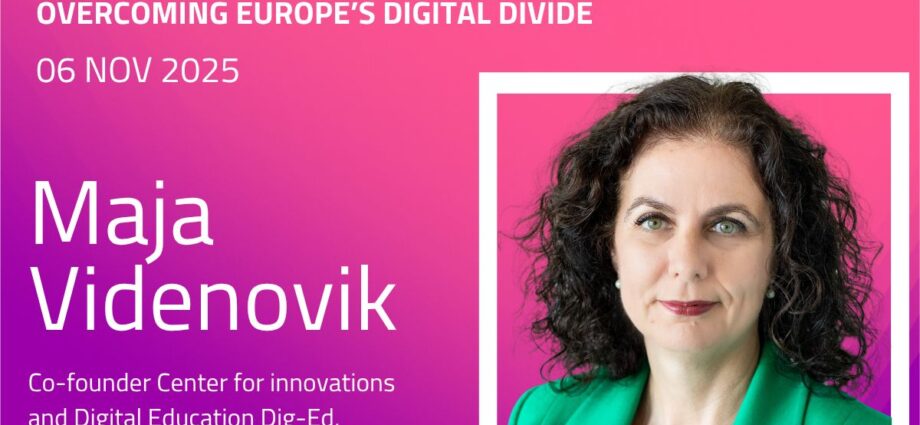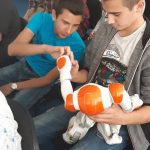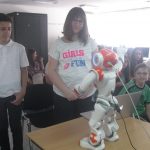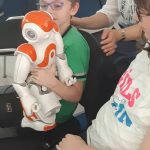We are delighted to announce that Maja Videnovik, from Dig-Ed, participated as a speaker in the sixth webinar of the DigiEduHack 2025 series, titled “Equity and Access in Digital Education: Overcoming Europe’s Digital Divide“. The focus of the webinar was to identify concrete barriers to equitable digital education — including infrastructure‑gaps, socio‑economic divides and language obstacles — and to explore possible strategies and approaches for closing those digital gaps.
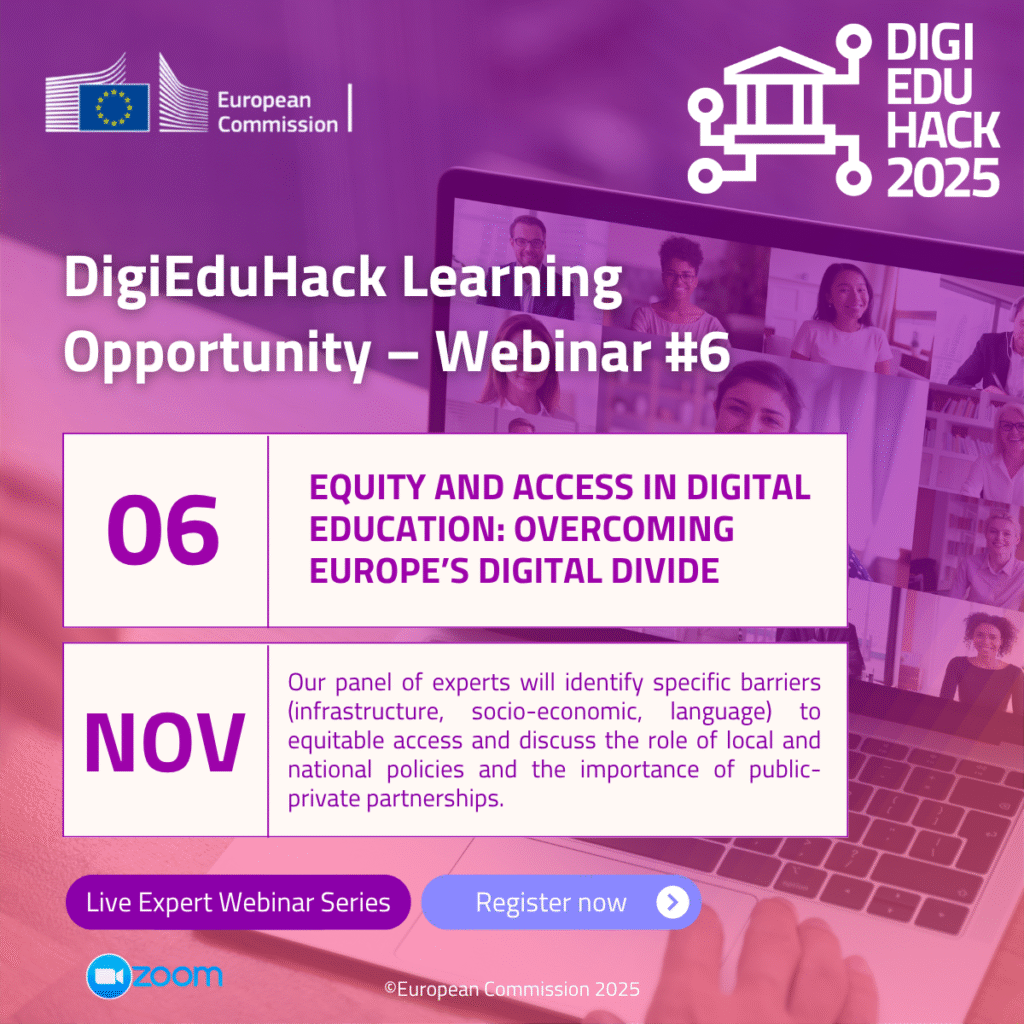
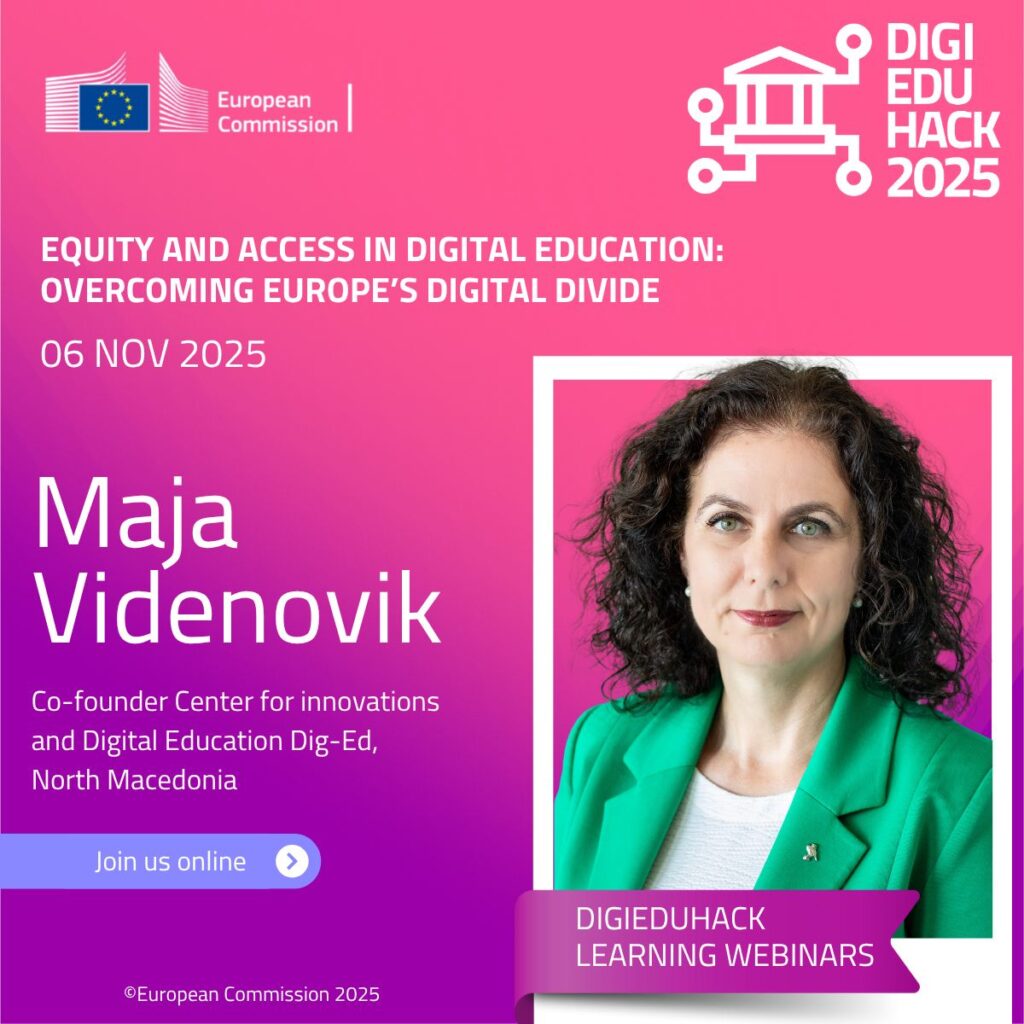
Maja Videnovik brought a grounded perspective shaped by her daily work with teachers and students in North Macedonia. Representing Dig-Ed, she spoke openly about what digital inequality looks like in real schools — not as a statistic, but as a lived experience.
Maja highlighted that for many underserved schools, the challenge goes far beyond missing devices. Patchy internet, outdated equipment, and teachers who feel unprepared to use digital tools all play a role. But just as important, she noted, is the mindset: in some schools, digital learning is still seen as optional rather than a tool for inclusion. She stressed that supporting underserved schools requires a holistic approach — pairing equipment with continuous, practical training, mentorship, and collaboration. “Digital inclusion is not only about technology,” she noted, “but about empowering teachers and students to use what they have to create real learning experiences.”
Drawing on Dig-Ed’s projects, she illustrated how gamification can help level the playing field when it focuses on collaboration, personal growth, and meaningful progress, rather than competition. The underlying principle is that gamification should empower, not exclude. Many of the activities she uses at Dig-Ed are team-based or adaptive, allowing learners to move at their own pace so everyone—regardless of background or prior knowledge—can participate and feel successful. From team-based cybersecurity games in the SHIELD project to Scratch activities created by students themselves, she showed how game-based learning can help mixed-ability groups learn together and build confidence.
Perhaps her most encouraging message was for schools with very limited equipment. Start small, she said. Use one computer, or even unplugged activities. Build teachers’ confidence step by step, and let creativity do the rest. “With the right approach,” she reminded the audience, “any school can take its first steps toward inclusive digital learning.”
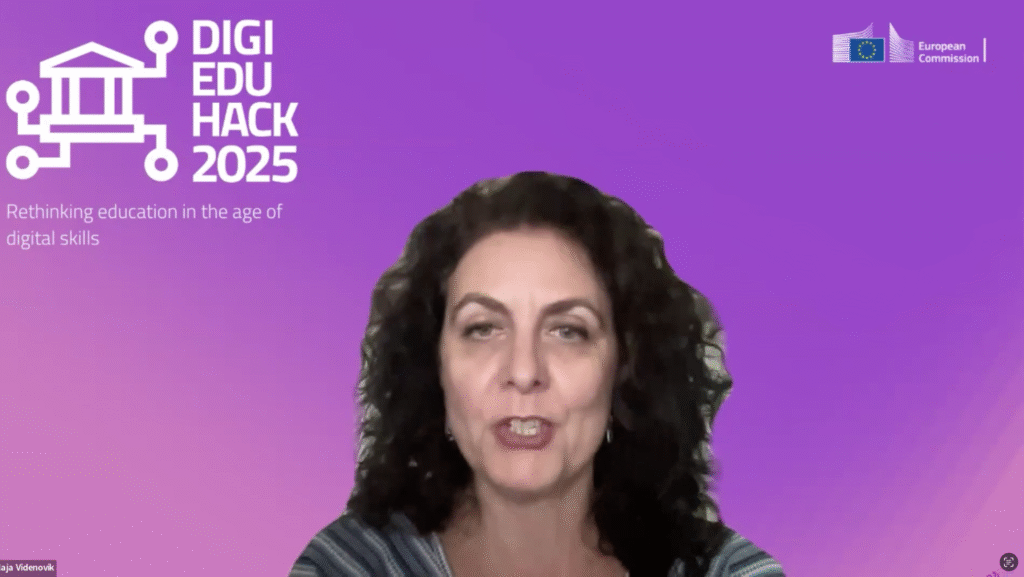
Through her contributions, Maja helped shift the conversation from abstract challenges to practical, achievable actions — a reminder that digital equity begins with people, not technology.
We congratulate Maja on her active role and thank her for representing Dig‑Ed in this influential international forum. We look forward to more opportunities to contribute to the conversation and to drive meaningful change in digital education innovation.
You can watch the whole episode at the following link: https://youtu.be/UQIx5HltZhE?si=-yxXGlso79bbLZRw

